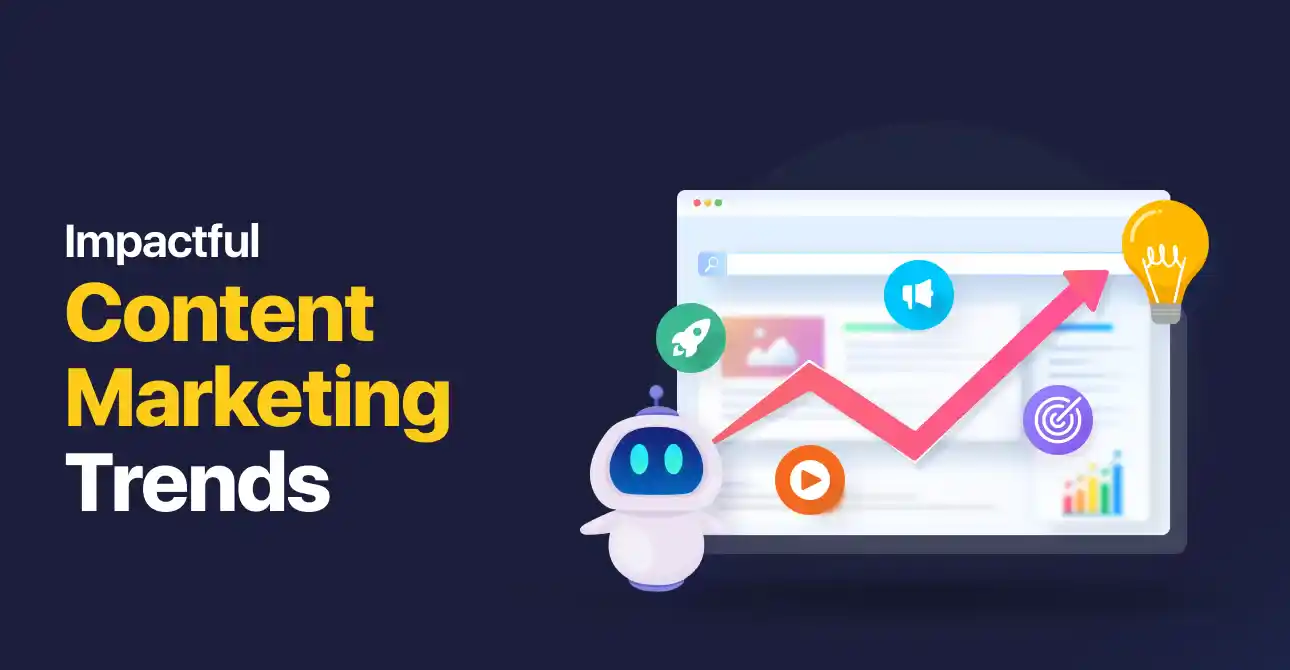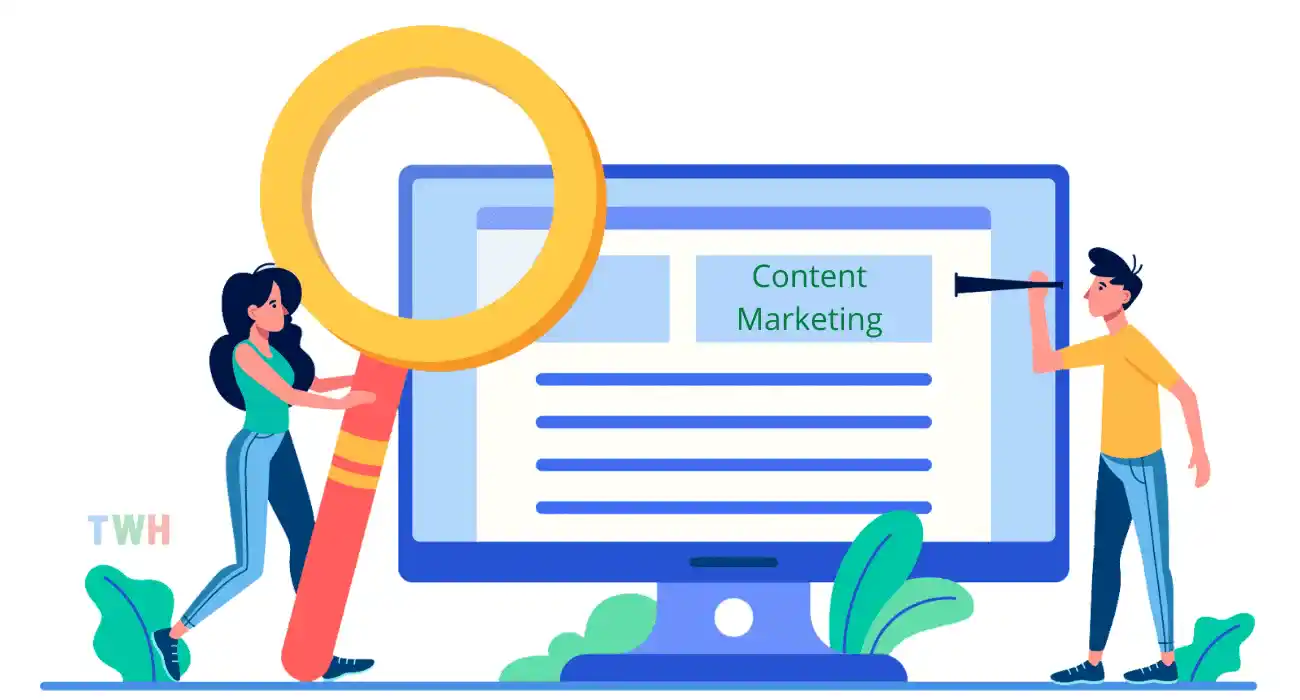Table of Contents
Content marketing continues to evolve, driven by advancements in technology and changing consumer preferences. For businesses aiming to remain competitive, understanding and leveraging the latest content marketing trends is crucial.
This article dives into key trends shaping the industry, from AI-powered solutions to sustainability, while also providing actionable tips to stay ahead in the game.
The Most Significant Content Marketing Trend in 2025
The most transformative content marketing trend in 2025 is the deep integration of Generative AI in marketing strategies. AI tools are no longer limited to assisting with minor tasks; they now play a central role in content creation, optimization, and distribution.
Generative AI models, like ChatGPT-4 and Jasper, can craft highly personalized content, ranging from blog posts to social media captions, in a fraction of the time it would take a human team.

Another aspect of this trend is the ability of AI marketing tools to analyze vast datasets to predict audience behavior. By studying user preferences, search histories, and engagement metrics, marketers can craft hyper-relevant content. This ensures higher click-through rates and more meaningful interactions with target audiences.
Moreover, AI-driven tools are helping brands embrace multilingual content strategies. With real-time translation capabilities, companies can now cater to global markets effectively, making their content inclusive and accessible to diverse audiences.
Best AI Tools for Content Marketing
As the reliance on AI grows, selecting the right tools becomes essential. Here are the best AI tools for transforming content marketing trends:
- ChatGPT: OpenAI’s ChatGPT is a versatile tool for creating conversational content, from customer support scripts to engaging blogs. Its ability to adapt tone and style to brand guidelines makes it indispensable.
- Jasper AI: Designed specifically for marketers, Jasper generates ad copy, email sequences, and social media posts. Its templates make content creation faster and easier.
- Surfer SEO: This tool integrates content creation with SEO insights, ensuring your blogs and articles rank well on search engines. Surfer provides suggestions for keywords, structure, and readability.
- Canva AI: Visual content remains key to engagement, and Canva AI simplifies the creation of graphics, infographics, and video thumbnails.
- HubSpot: HubSpot’s AI-powered CRM includes tools for content recommendations and email marketing, allowing businesses to build data-driven campaigns.
- Picsart: A creativity-driven platform, Picsart offers AI-powered tools for stunning visuals. With features like templates, AI filters, and background removal, it’s perfect for crafting engaging social media graphics and ads.
By incorporating these tools, brands can align with emerging content marketing trends and deliver high-quality, relevant material efficiently.
How Will Sustainability Affect Content Marketing?
In 2025, sustainability will continue to influence content marketing trends as consumers increasingly demand transparency and eco-consciousness from brands. Businesses are weaving their environmental commitments into their storytelling, aiming to connect emotionally with a socially aware audience.
For example, brands now create detailed narratives around their sustainability initiatives, such as reducing carbon footprints, adopting renewable energy, or minimizing waste. Content formats such as videos made using commercial video services, blogs, and social media posts highlight these efforts, building trust with eco-conscious consumers.
Interactive content also plays a role in sustainability-focused campaigns. Quizzes and calculators that show users how their choices impact the environment are gaining popularity. Such tools not only educate audiences but also position brands as thought leaders in sustainability.
Moreover, businesses are leveraging UGC creators (User-Generated Content) and user generated content agency to amplify their sustainability stories. When customers share their experiences with sustainable products, it adds authenticity to a brand’s messaging.
Finally, sustainability affects the operational aspects of content creation. Companies are adopting greener practices, such as minimizing printed materials and prioritizing digital campaigns to reduce their environmental impact. Aligning with this trend is vital to maintaining relevance in an increasingly eco-conscious market.
The Most Effective Way to Stay Updated on Content Marketing Trends

Given the rapid evolution of content marketing trends, staying informed is essential for marketers. Here are the most effective ways to keep up:
- Follow Industry Blogs: Websites like Content Marketing Institute, HubSpot, and MarketingProfs regularly publish articles, case studies, and reports on the latest trends and strategies.
- Attend Webinars and Conferences: Events such as Content Marketing World and INBOUND offer deep dives into emerging trends, providing access to industry leaders and new technologies.
- Subscribe to Newsletters: Sign up for updates from trusted platforms. These newsletters provide bite-sized insights into the latest developments.
- Join Professional Communities: Engaging with LinkedIn groups, Reddit forums, or Discord channels dedicated to marketing can provide fresh perspectives and practical advice. Many professionals in media and communications planning also participate in these spaces to exchange insights, share strategies, and stay updated on emerging industry trends.
- Experiment and Analyze: Hands-on experimentation with new tools and strategies helps marketers understand what works best for their audience. Pair this with analytics tools like Google Analytics 4 or Popsters Social media content analytics tool to analyze and measure success.
- Leverage Social Media: Platforms like Twitter and LinkedIn are goldmines for real-time updates and discussions. Following marketing influencers can provide valuable insights into the ever-changing landscape.
By adopting these practices, marketers can not only stay informed about content marketing trends but also gain the competitive edge needed to thrive in a dynamic digital environment.
Future of Content Marketing Trends
In conclusion, the landscape of content marketing trends in 2025 will be defined by AI-powered innovations, sustainability-focused storytelling, and the importance of staying agile.
By embracing these shifts, brands can ensure their strategies remain effective, relevant, and impactful.